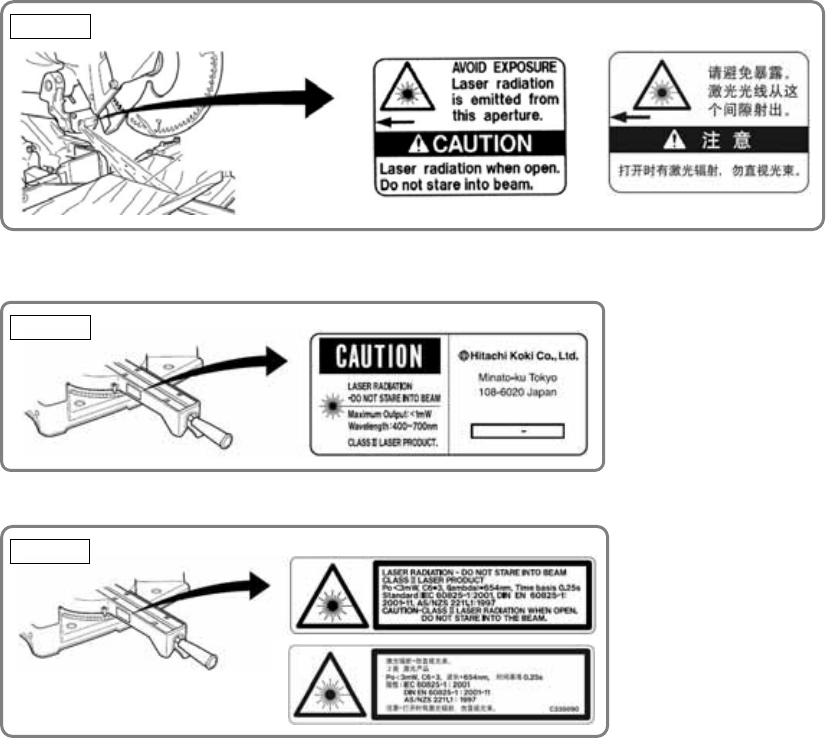
-14-
(4) Caution label (J) (at the front of the hinge) and caution labels (C) and (E) (at the front left of the turn
table) (only the Model C 8FSHE)
Do not stare into laser beam. If your eye is exposed directly to the laser beam, it can be hurt. Caution
label (J) and caution labels (C) and (E) are adhered to each machine to comply with the
standards for the safe use of laser equipment.
·
Caution label (J) (at the front of the hinge) (only the Model C 8FSHE)
·
Caution labels (C) and (E) (at the front left of the turn table) (only the Model C 8FSHE)
For the U.S.A. and Canada
For Europe, Australia, China and Asia
C. Relative standards
Standards, regulations and guidelines for the safe use of laser equipment
[The U.S.A.] FDA CDRH 21 CFR
[AUS/NZL] AS/NZS 2211.1: 2001
[Europe] EN 60825-1: 2001-11
D. Laser marker (only the Model C 8FSHE)
The Model C 8FSHE is equipped with the laser marker that complies with the Class II requirements of the
standard specified in "Relative standards." The Class II laser is defined as follows:
·
The laser power is low and it is safe by the protective measures such as blinking.
However, it is dangerous if the operator’s eyes are exposed directly to the laser for a protracted period.
·
The operator can use the laser equipment without particular training and instruction.
·
The amount of light exposure (output) is 1 mW or less at the position where the operator can be exposed
to the laser radiation during operation. (This is in the case of the U.S.A. The measuring methods and the
output values are different depending on the standards.)
The saw blade unit prevents access of the operator’s eye to the laser-emitting aperture less than 65 mm.
In addition, the amount of light exposure (output) is 1 mW or less (about 0.4 mW) at this position. Thus
the Model C 8FSHE satisfies the Class II requirements adequately. There is no ill effect on the operator’s
body if looking at the laser line on the workpiece during operation.
Fig. 15-a
Fig. 15-b
Fig. 15-c


















